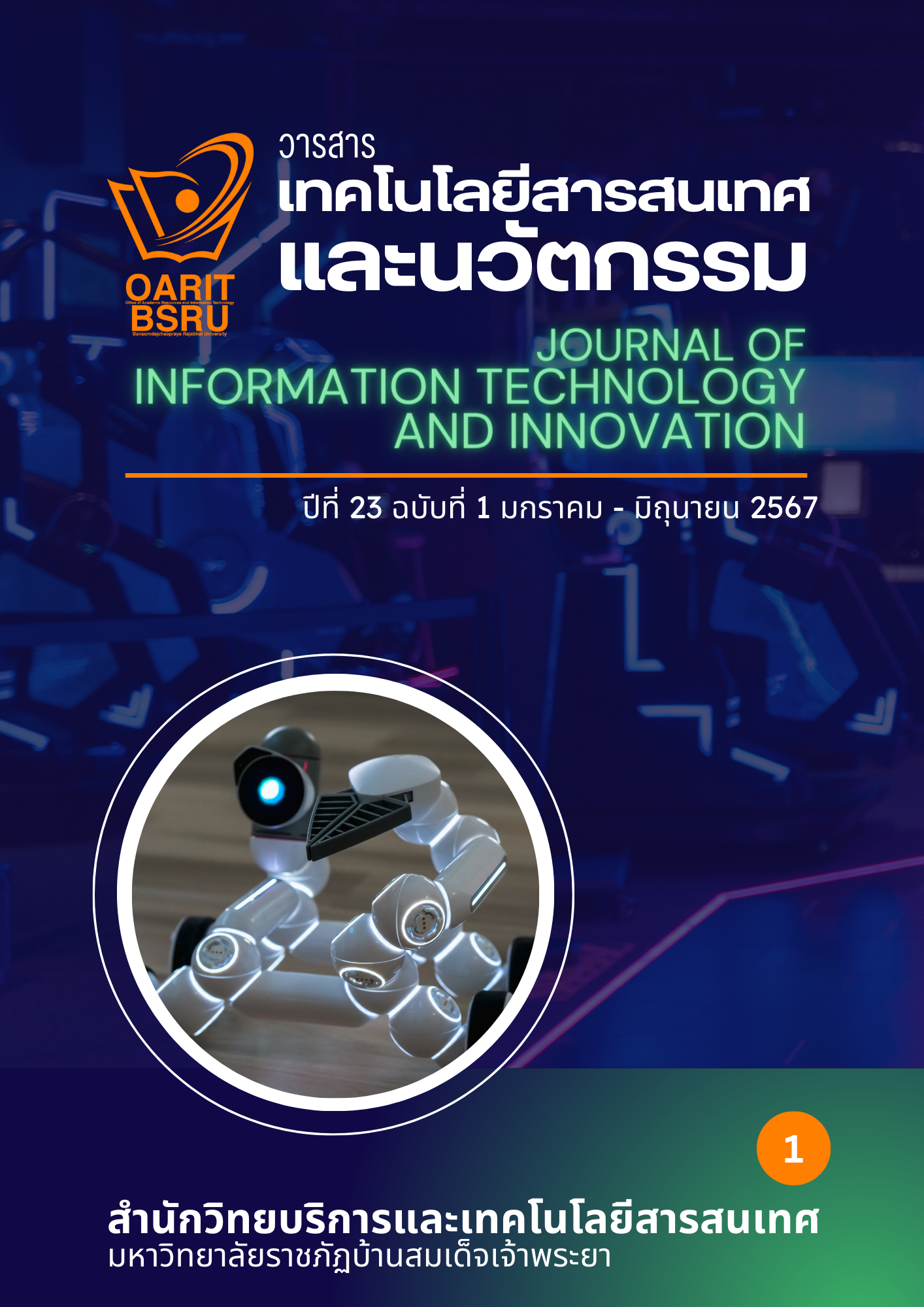Generative AI in Education: ChatGPT and Gemini as an Educational Tool
Keywords:
Generative artificial intelligence, ChatGPT, GeminiAbstract
In the past 1-2 years, there have been significant changes in the field of artificial intelligence. One notable development is the emergence of what is called "generative AI." The key characteristic of this type of AI is its ability to automatically generate various content, including text, images, audio, video, and human-like responses. This capability has led to the application of generative AI in various fields, such as data analysis, computer programming, media design, music composition, and education. Despite its diverse applications, there are limitations to the practical use of generative AI.
This article aims to explore and explain the concept of generative AI, providing examples of popular models like ChatGPT and Gemini. It discusses the benefits of using generative AI in education and outlines the challenges and constraints associated with its application in practical scenarios. The article sheds light on the growing popularity of generative AI and its potential uses while acknowledging the existing limitations and considerations in real-world implementation.
References
Abukmeil, M., Ferrari, S., Genovese, A., Piuri, V., & Scotti, F. (2021). A survey of unsupervised
generative models for exploratory data analysis and representation learning.
ACM Computing Surveys. 54(5), 1-40. https://doi.org/10.1145/3450963
Alafnan, M. A., Dishari, S., Jovic, M., & Lomidze, K. (2023). ChatGPT as an educational tool:
Opportunities, challenges, and recommendations for communication, business writing,
and composition courses. Journal of Artificial Intelligence and Technology. 3(2),
–68. https://doi.org/10.37965/jait.2023.0184
Alshater, M. M. (2022). Exploring the Role of Artificial Intelligence in Enhancing Academic
Performance: A Case Study of ChatGPT. SSRN. http://dx.doi.org/10.2139/ssrn.4312358
Atlas, S. (2023). ChatGPT for Higher education and professional development: A guide to
conversational AI. Digital Commons@URI. https://digitalcommons.uri.edu/cba_
facpubs/548/
Aydın, Ö., & Karaarslan, E. (2022). OpenAI ChatGPT Generated Literature Review: Digital Twin in
Healthcare . In Ö. Aydın (Ed.), Emerging Computer Technologies. 2, 22-31. İzmir Akademi
Dernegi. http://dx.doi.org/10.2139/ssrn.4308687
Baidoo-Anu, D., Owusu Ansah, L. (2023). Education in the era of generative artificial intelligence
(AI): Understanding the potential benefits of ChatGPT in promoting teaching and learning. Journal of AI. 7(1),52-62.
Chinonso, O. E., Theresa, A. M-E., & Aduke, T. C. (2023). ChatGPT for teaching, learning and
research: Prospects and challenges. Global Academic Journal of Humanities and Social Sciences. 5(2), 33-40. doi:
36348/gajhss.2023.v05i02.001
D'Mello, S., Craig, S., Witherspoon, A., & Graesser, A. (2014). Affective and learning-related dynamics during interactions with an
intelligent tutoring system. International Journal of Human-Computer Studies. 72(6), 415-435.
Elsen-Rooney, M. (2023). NYC education department blocks ChatGPT on school devices, networks. Chalkbeat New York. schools-ban-
chatgpt-writing-artificial- intelligence
Gemini (language model). (2024, June 19). In Wikipedia. https://en.wikipedia.org/wiki/
Gemini_(language_model).
Gemini Team, Google. (2024). Gemini: A family of highly capable multimodal models. Google
Deepmind. https://storage.googleapis.com/deepmindmedia/gemini/gemini_
v1_5_report.pdf
Gemini. (2024). Gemini (Mar 11 version) [Large language model]. https://gemini.google.com/u/1/app
Gui, J., Sun, Z., Wen, Y., Tao, D., & Ye, J. (2021). A review on generative adversarial networks: Algorithms, theory, and applications. IEEE
Transactions on Knowledge and Data Engineering. 35(4), 3313-3332. doi: 10.1109/TKDE.2021.3130191
Herft, A. (2023). A Teacher's Prompt Guide to ChatGPT aligned with 'What Works Best' Guide.
UserGenerated Education. https://usergeneratededucation.files.wordpress.com/2023/
/a-teachers-prompt-guide-to-chatgpt-aligned-with-what-works-best.pdf
Hu, L. (2022). Generative AI and future. Medium. https://pub.towardsai.net/generative-ai-and-
future-c3b1695876f2
Jovanović, M. & Campbell, M. (2022). Generative artificial intelligence: Trends and prospects.
Computer. 55(10), 107 – 112. doi: 10.1109/MC.2022.3192720
Kohnke, L., Moorhouse, B.L., & Zou, D. (2023). ChatGPT for language teaching and Learning.
RELC Journal. 54(2), 537–550. https://doi.org/10.1177/00336882231162868
Lee, G-G., Shi, L., Latif, E., & Zhai, X. (2023). Gemini Pro Defeated by GPT-4V: Evidence from
Education. Coenell University. https://arxiv.org/abs/2401.08660
Lo, C.K. (2023). What Is the impact of ChatGPT on education? a rapid review of the literature. Education Sciences. 13(4), 410.
http://dx.doi.org/10.3390/educsci13040410
Mhlanga, D. (2023). Open AI in Education, the Responsible and Ethical Use of ChatGPT Towards Lifelong Learning. SSRN.
http://dx.doi.org/10.2139/ssrn.4354422
OpenAI. (2024). ChatGPT (Mar 11 version) [Large language model]. https://chat.openai.com/chat.
Pavlik, J. V. (2023). Collaborating with ChatGPT: Considering the implications of generative artificial intelligence for journalism and
media education. Journalism & Mass Communication Educator. 78(1), 84–93. https://doi.org/10.1177/10776958221149577
Rane, N., Choudhary, S. & Rane, J. (2024). Gemini versus ChatGPT: Applications, performance,
architecture, capabilities, and implementation. SSRN. http://dx.doi.org/10.2139/ssrn.4723687
Sallam, M. (2023). ChatGPT utility in healthcare education, research, and practice: Systematic
review on the promising perspectives and valid concerns. Healthcare. 11(6), 887. https://doi.org/10.3390/healthcare11060887
Sallam, M., Salim, N.A., Barakat, M., & Al-Tammemi, Ala’a B. (2023). ChatGPT applications in medical, dental, pharmacy, and public health
education: A descriptive study highlighting the advantages and limitations. Narra J. 3(1). https://doi.org/10.52225/
narra.v3i1.103
Terwiesch, C. (2023). Would Chat GPT3 get a Wharton MBA? a prediction based on its performance in the operations management
course. The Mack Institute for Innovation
Management.https://mackinstitute.wharton.upenn.edu/wp-content/uploads/2023/01/Christian-Terwiesch-Chat-GTP.pdf
Tlili, A., Shehata, B., Adarkwah, M. A., Bozkurt, A., Hickey, D. T., Huang, R., & Agyemang, B. (2023). What if the devil is my guardian angel:
ChatGPT as a case study of using chatbots in education. Smart Learning Environment. 10(15). https://doi.org/10.1186/s40561-
-00237-x
Downloads
Published
How to Cite
Issue
Section
License
Copyright (c) 2024 Journal of Information Technology and Innovation

This work is licensed under a Creative Commons Attribution-NonCommercial-NoDerivatives 4.0 International License.
บทความ ข้อความ ภาพประกอบ และตารางประกอบที่ลงพิมพ์ในวารสารเป็นความคิดเห็นส่วนตัวของผู้นิพนธ์ กองบรรณาธิการไม่จำเป็นต้องเห็นตามเสมอไป และไม่มีส่วนรับผิดชอบใดๆ ถือเป็นความรับผิดชอบของผู้นิพนธ์เพียงผู้เดียว






